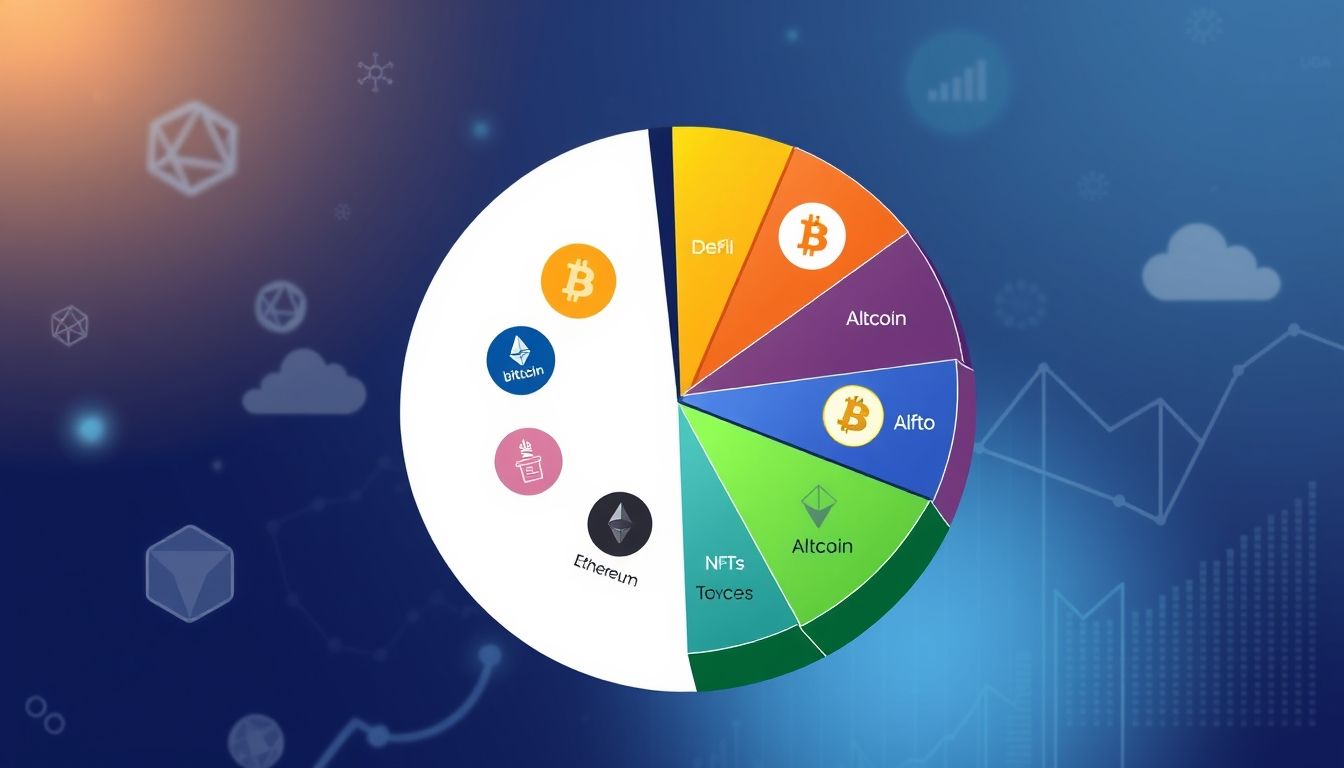The Future of Digital Money in the Gulf: Government Regulation as a Compass for Innovation or a Constraint on Expansion?
The Arab Gulf region is undergoing a rapid digital transformation, with cryptocurrencies playing a pivotal role. With increasing interest and usage, the need for effective government regulation that balances encouraging innovation and protecting investors is paramount. This article aims to explore the current state of government regulation of cryptocurrencies in the Gulf countries, analyze the challenges and opportunities they face, and provide insights into the future of this vital sector.
Chapter 1: Cryptocurrencies in the Gulf: An Overview
Recent years have seen remarkable growth in the use of cryptocurrencies in the Gulf region, driven by factors such as high rates of internet and smartphone usage, increasing interest in blockchain technologies, and the desire of young people to adopt innovative financial solutions.
Top Cryptocurrencies Used
- Bitcoin (BTC): The most famous and widely used cryptocurrency globally, considered the pioneer of cryptocurrencies.
- Ethereum (ETH): A blockchain platform that supports decentralized applications and smart contracts, in addition to its own cryptocurrency (Ether).
- Stablecoins: Cryptocurrencies pegged to the value of stable assets like the US dollar, reducing their price volatility.
- Other Cryptocurrencies: Such as Ripple (XRP), Litecoin (LTC), and other currencies that aim to provide innovative solutions in the field of payments and financial transfers.
Uses of Cryptocurrencies in the Gulf
- Investment: Cryptocurrencies are considered an attractive investment opportunity for many individuals and institutions in the Gulf.
- Payments and Transfers: Cryptocurrencies are used in online payments and international financial transfers, especially given the high costs of traditional transfers.
- E-commerce: Some e-commerce stores in the Gulf have started accepting cryptocurrencies as a payment method.
- Decentralized Finance (DeFi): Interest is growing in decentralized finance applications based on blockchain technology, such as lending, borrowing, and decentralized trading.
Chapter 2: Current Status of Government Regulation in Gulf Countries
Gulf countries' strategies for dealing with cryptocurrencies vary. Some countries adopt a cautious approach focusing on protecting investors and preventing the use of cryptocurrencies in illegal activities, while others adopt a more open approach aimed at encouraging innovation and attracting startups in this field.
Saudi Arabia
Saudi Arabia is considered one of the countries that adopts a cautious approach in dealing with cryptocurrencies. The Saudi Central Bank prohibits the trading of cryptocurrencies and their use in payments, but allows the experimentation of blockchain technologies in a regulatory sandbox.
United Arab Emirates
The United Arab Emirates is considered one of the most open Gulf countries to cryptocurrencies and blockchain technologies. The Dubai government launched the Blockchain Strategy, which aims to make Dubai a leading city in this field. The Securities and Commodities Authority (SCA) has also established a regulatory framework for trading digital assets.
Qatar
Qatar adopts a relatively cautious approach in dealing with cryptocurrencies. The Qatar Central Bank prohibits the trading of cryptocurrencies and their use in payments, but allows the experimentation of blockchain technologies in a regulatory sandbox.
Kuwait
Kuwait is considered one of the countries that adopts a very cautious approach in dealing with cryptocurrencies. The Central Bank of Kuwait prohibits the trading of cryptocurrencies and their use in payments.
Bahrain
Bahrain is considered one of the countries that adopts a balanced approach in dealing with cryptocurrencies. The Central Bank of Bahrain allows the trading of cryptocurrencies in a regulatory sandbox and assesses the risks and opportunities associated with this sector.
Oman
Oman adopts a cautious approach in dealing with cryptocurrencies and is assessing the risks and opportunities associated with this sector before making any regulatory decisions.
Chapter 3: Challenges Facing Government Regulation
Governments in Gulf countries face several challenges in regulating the cryptocurrency sector, including:
- Price Volatility: Cryptocurrencies are characterized by significant price volatility, increasing investment risks.
- Fraud Risks: The risk of fraud and money laundering increases in the absence of effective regulation.
- Lack of Awareness: Awareness of cryptocurrencies and blockchain technologies remains limited among many individuals and institutions.
- Technical Challenges: Blockchain technology requires specialized technical expertise, making regulation and oversight more difficult.
- Cross-border Nature: Cryptocurrencies operate across borders, making it difficult for any single country to regulate this sector effectively.
Chapter 4: Opportunities Available from Effective Regulation
Despite the challenges, effective government regulation of cryptocurrencies offers many opportunities for Gulf countries, including:
- Attracting Investments: Clear and attractive regulation can attract foreign and domestic investments to the cryptocurrency sector.
- Encouraging Innovation: Flexible and supportive regulation can encourage innovation and the development of new applications based on blockchain technology.
- Enhancing Transparency: Effective regulation can enhance transparency and reduce the risks of fraud and money laundering.
- Improving Efficiency: Cryptocurrencies can improve the efficiency of payments and financial transfers, especially given the high costs of traditional transfers.
- Developing the Digital Economy: The cryptocurrency sector can contribute to the development of the digital economy and create new job opportunities.
Chapter 5: Successful Global Regulatory Models
Gulf countries can benefit from global experiences in regulating cryptocurrencies, including:
Singapore
Singapore is considered a leading country in regulating cryptocurrencies, having established a comprehensive regulatory framework covering aspects such as the issuance, trading, and custody of digital assets. This framework aims to encourage innovation and protect investors.
Switzerland
Switzerland is considered one of the countries that adopts a balanced approach in regulating cryptocurrencies, allowing the trading and custody of cryptocurrencies, but subjecting these activities to strict oversight by regulatory authorities.
European Union
The European Union is working on establishing a unified regulatory framework for cryptocurrencies, aiming to regulate the issuance, trading, and custody of digital assets, as well as combating money laundering and terrorist financing.
Chapter 6: The Role of Financial Technology (FinTech)
Financial technology (FinTech) companies play a crucial role in developing the cryptocurrency sector in the Gulf, providing innovative solutions in areas such as payments, financial transfers, and investment. Governments should support these companies and provide a suitable regulatory environment for their growth and prosperity.
Chapter 7: The Importance of Regional and International Cooperation
Given the cross-border nature of cryptocurrencies, regional and international cooperation is necessary to regulate this sector effectively. Gulf countries should cooperate with each other and with other countries to exchange information, experiences, and coordinate regulatory efforts.
Chapter 8: The Future of Government Regulation of Cryptocurrencies in the Gulf
Government regulation of cryptocurrencies in the Gulf is expected to undergo significant developments in the coming years, with countries adopting a more mature and balanced approach aimed at encouraging innovation and protecting investors. We are likely to see more Gulf countries establish clear and comprehensive regulatory frameworks for trading and custody of digital assets.
Chapter 9: Recommendations for Policymakers
To maximize the benefits of the cryptocurrency sector, policymakers in Gulf countries should:
- Establish Clear and Comprehensive Regulatory Frameworks: These frameworks should cover aspects such as the issuance, trading, and custody of digital assets, and combating money laundering and terrorist financing.
- Encourage Innovation: Provide a flexible and supportive regulatory environment for startups in the cryptocurrency field.
- Protect Investors: Establish mechanisms to protect investors from the risks associated with cryptocurrencies.
- Raise Awareness: Organize awareness campaigns to raise awareness of cryptocurrencies and blockchain technologies.
- Regional and International Cooperation: Cooperate with other countries to exchange information, experiences, and coordinate regulatory efforts.
Chapter 10: Conclusion
Government regulation of cryptocurrencies in Gulf countries represents both a challenge and an opportunity. By adopting a balanced approach that combines encouraging innovation and protecting investors, Gulf countries can benefit from the immense potential of the cryptocurrency sector and contribute to building a thriving digital economy.
Disclaimer: This article is for informational purposes only and does not constitute financial advice. Readers should consult a qualified financial advisor before making any investment decisions.




